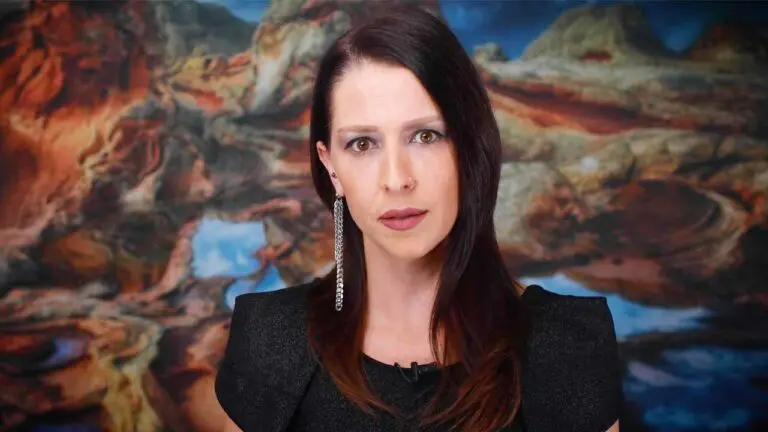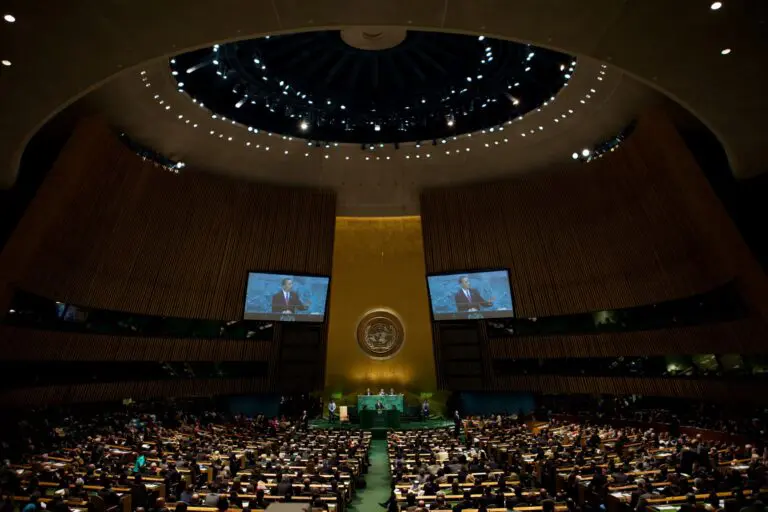Shireen Al-Adeimi, Yemen anti-war activist and professor at Michigan State University, discusses the many interests behind the war on Yemen, which have the potential of derailing Biden’s announced ending of US support for the Saudi-led coalition in this war that has devastated one of the Middle East’s poorest countries.
Transcript
Greg Wilpert
Welcome to theAnalysis.news podcast. I’m your guest host, Greg Wilpert. President Joe Biden recently announced on February 4th that the U.S. will no longer support “offensive operations in the war in Yemen, including relevant arms sales.” The announcement was welcomed with joy in many circles, considering that the six-year Saudi-led war in Yemen has killed over 230,000 people and has brought most of the Yemeni population to the brink of famine. But what does Biden’s declaration really mean? Will the Yemen war finally come to an end now?
Joining me to discuss this question and related issues is Shireen Al-Adeimi. She is an assistant professor of education at Michigan State University who has been very active in raising awareness about the war in Yemen, her country of birth. Thanks for joining me, Shireen.
Shireen Al-Adeimi
Thanks for having me.
Greg Wilpert
So you recently wrote an article for the publication In These Times in which you say that it’s too soon to celebrate the end of U.S. support for the war in Yemen. What makes you say that?
Shireen Al-Adeimi
Yes. So my colleague Sarah Lazare and I wrote this article because we were seeing a lot of initial reactions of joy and celebration, and of course, that was my initial reaction as well. We’d worked really, really hard over the last six years to bring an end to U.S. complicity in this war because of how involved the U.S. has been in Yemen, and an announcement like that by Joe Biden was what we’ve been waiting to hear all these years, but when we listened carefully to what the announcement actually was, there are some caveats that made us really skeptical and worried about what this might mean for really truly ending the war in Yemen, and whether this might just be a sort of rebranding of the war while the situation on the ground doesn’t change qualitatively for the average Yemeni.
Greg Wilpert
So first of all, can you maybe say a little bit more as to what it is exactly that Biden said that makes you skeptical about the finality, so to speak, of U.S. support.
Shireen Al-Adeimi
So he says that he will end “offensive operations” in Yemen. The offensive role here is concerning because then he goes on to say that he is committed to defending Saudi Arabia from Houthis, he called them Iran groups or something like that (“Iranian-supplied forces”) and defending Saudi “sovereignty,” and this to me, sounds a lot like what the Obama-Biden administration, framed the war as to begin with in March of 2015, almost six years ago, when they said they were supporting the Saudi-led coalition in order to defend Saudi territories and borders from the Houthis.
And so if all of these six years past six years have been a defensive war, then what changes when Biden says we’re ending offensive operations? The other concerning thing was that he said they are going to be ending “relevant arms sales.” Now, Saudi Arabia receives about 70 percent of their arms are from the United States. So what is relevant and irrelevant here when they’re using these arms to bomb Yemen, both them and the UAE.
So ending the war is going to require ending all forms of support, not just “relevant arms sales” and not just “offensive operations,” whichever way those are defined, we’re not quite sure yet.
Greg Wilpert
Hmm. And, of course, one of the main issues which you’ve just mentioned also is this idea that Iran is somehow involved and that the U.S. needs to help Saudi Arabia in countering Iranian influence and all of that. What do you make of those arguments and to what extent do you think that held any kind of validity?
Shireen Al-Adeimi
I mean, Yemenis have paid the price because of this framing by Saudi Arabia that is often repeated by D.C. that the Houthis are just Iranian proxies. And this cannot be further from the truth. Yes, Iran has an influence on the Houthis, but this is by no means comparable. You can’t compare it to the kinds of support that the Saudi-led coalition has received from the United States. To say that the Houthis are Iranian-backed is absolutely not the same as saying the U.S.-backed coalition, U.S.-backed means the U.S. is doing everything except for pulling the trigger for the Saudi-led coalition.
Iran-backed means that the Houthis have a positive relationship with Iran and maybe receive some kind of intelligence from the Iranians every now and then. Of course, Yemen is under a blockade, a naval, land, and aerial blockade that’s enforced by the Saudi-led coalition, and so to say that they are receiving any arms from Iran would be ludicrous considering how many countries are enforcing that blockade, and there’s just not been any evidence of that. Iranian bombs are not landing on Yemeni civilians or Saudi civilians.
Iranian missiles are not landing anywhere. It’s been six years. You won’t find any Iranians on the ground supporting the Houthis. So this has been an overblown, exaggerated role that the U.S. and Saudi have used in the name of fighting Iran in the region have unfortunately destroyed Yemen, but the interests are quite different than what they’re saying. The interest in Yemen is Yemen’s geopolitical location, is Yemen’s control over Bab Al-Mandab Strait, and that’s why the U.S. and Saudi is involved in Yemen, not because of Iran.
Greg Wilpert
Well, actually, I think that’s very interesting. Can you say a little bit more about that? I mean, what is it exactly that makes Yemen so strategic? I mean, it’s a relatively poor country. It’s not exactly known for its natural resources. So what exactly are those issues that you’re talking about?
Shireen Al-Adeimi
Yeah, so that should be the obvious question then, right? Why did the U.S. enter Yemen? Why is Saudi Arabia and the UAE, some of the world’s richest countries involved in Yemen? And the truth is that they couldn’t care less about the legitimate government of Yemen. These are monarchies we’re talking about. They don’t care about democracies. Yemen is at the tip of the Arabian Peninsula and controls Bab Al-Mandab Strait. Now, 6.2 million barrels of oil and oil products per day travel to Europe through the Suez Canal in Egypt and down to Asia through that Strait. About 30 percent of the world’s oil travels there, so it’s been of importance to countries that are oil dependent, like the U.S. and countries that are oil producing, like Saudi Arabia and the UAE. So that’s really the goal here is to make sure that they continue to have a government in Yemen, as they had for decades, who is pro-U.S pro- Saudi Arabia, so they don’t encounter any issues there.
With the rise of the Houthis in 2014, it was clear that they were going to have an explicitly anti-U.S. anti-Saudi Arabian potentially government in Yemen, and that’s what drove Saudi Arabia to intervene and that’s what drove the U.S. to support them so quickly. But yeah, Yemen is the poorest country in the Middle East. There’s some potential oil reserves in northern Yemen, but really, it’s the strategic location that’s of importance here.
And it’s so important, by the way, that China built its only foreign base on the other side of Yemen, in Djibouti, in 2017, a couple of years after the war started. So this is not something to be dismissed.
Greg Wilpert
Hmm. No. And you mentioned already the United Arab Emirates, which has also been involved. They announced a while ago that they were going to withdraw from the war in Yemen. What’s going on there? I mean, what is their involvement at the moment?
Shireen Al-Adeimi
The involvement has been the same since the beginning. The move to withdraw from Yemen was a PR stunt really. They clarified a couple of days later that they had trained something like, I think sixty or ninety thousand soldiers on the ground in Yemen. What they did was they pulled out their forces from the ground in Yemen so as not to put them in harm’s way, but we know that you don’t have to have soldiers on the ground to be involved in a war.
The U.S., for example, doesn’t have any U.S. soldiers on the ground in Yemen. There aren’t going to be any veterans of the Yemen war yet Congress passed a War Powers Resolution in 2019, directing Trump to end his illegal and unconstitutional war in Yemen.
So the UAE is continuing to support the southern separatist group called the STC, the Southern Transitional Council. They are backed by the UAE and they control much of South Yemen. The UAE has been implicated in the operation of several, up to at least 18 actually, clandestine prisons where torture has been documented. The UAE has been all but occupying the island of Socotra in south Yemen. They have been involved in an assassination campaign, and all of these are well-reported and well-documented assassination campaign of southern religious leaders where they’ve hired American and Israeli mercenaries to do the job.
Of course, they’ve been involved in the bombing campaign. Their role has been as destructive as Saudi, but even more perhaps imperialistic, and maybe their footprint in Yemen will be long term is what they’re hoping for, compared to Saudi Arabia who’s just in there to bomb and win this war. So it’s quite a nefarious role, and what they’ve done is rebranded themselves as having exited the war in Yemen, but they remain in control of many areas and are involved in the destruction of Yemen.
Greg Wilpert
You also mentioned just now the War Powers Resolution that was passed last year, actually a little over a year ago now, in the article that I mentioned in the beginning in In These Times, mentioned that there’s a new effort to pass another War Powers Resolution now, and I believe Ro Khanna, Representative Ro Khanna is spearheading that effort again. But the question, I guess, is what’s the significance of having a new War Powers Resolution, considering that Biden has announced that he would withdraw? And how likely is it to pass if members of Congress believe that the U.S. is actually going to withdraw anyway?
Shireen Al-Adeimi
Well, I’d be interested to see in how interested Ro Khanna is now after Biden’s announcement. He made that statement before Biden’s announcement by about a week, and so I personally think that it’s important to pass the War Powers Resolution because we can’t take Biden’s word for it. How many times did we hear from the Obama administration that the war in Iraq was going to end?
Biden said the war in Afghanistan was going to end in 2014 and we can’t have Yemen be one of those long-lasting projects where we have these promises, and the reality on the ground is the same for Yemenis. And so I think that ending intelligence sharing is a first step, but how else is the U.S. involved in Yemen? We don’t even know, for example, if they’re enforcing the blockade. Are they going to be lifting that?
Are they going to stop? What is this distinction between offensive and defensive, like we talked earlier? Who’s going to make that decision? I think it’s important for Congress to take over here, take over this process and to legislate an end for the war and not rely on executive powers. We know that executive powers are flimsy. You know, you saw with the Muslim ban, for example, one president put it in and the other president took it out, and so we can’t have a war reliant on a presidential order or a presidential promise.
It’s up to Congress to decide these things. And I think either through War Powers, I think War Powers would be the strongest way to do it, but maybe there are other mechanisms as well to make sure that we have a legislative kind of mandate to end this war.
Greg Wilpert
And what do you think would need to happen for both Biden to actually withdraw and maybe with the support of the War Powers Resolution? I mean, what would have to happen that is in the U.S. public? What do you think needs to be done?
Shireen Al-Adeimi
I mean, Sarah and I wrote that article because we were worried that with all of this jubilation, people would relax a bit, and I really feel like this is the time to really keep going and maybe go even stronger than we ever have, because here’s an opportunity. We have a president who has acknowledged that this war has to end, that Yemeni’s, he said, have endured, you know, have suffered unendurable circumstances, something like that (“unendurable devastation”).
For him to acknowledge that is a big step. Now, if it was because of the humanitarian crisis, then Obama would have ended the war in 2015 and 2016. Unfortunately, didn’t play out that way. You know, civilians were dying. Civilians were starving back in 2015, 2016, and yet the Obama-Biden administration continued their war in Yemen. So I think what needs to happen is for people to build up a lot of a lot more pressure right now and to really get their Congresspeople involved in this process.
It’s great that Biden is saying he wants to end the war, but we have to see it through. We have to make sure that every aspect of U.S. complicity ends, and then, of course, we need to talk about reparation and what it means to just… You can’t just go in and destroy an entire country and say, oops, you know, this is a bad situation without even apologizing or repairing or providing reparations so that Yemenis can rebuild their lives.
And so I think we need to be talking about a lot more so that justice is, you know, Yemenis see justice and not just an end to this war. You know, what was it all for? It was this pointless war to begin with and the only civilians who suffered were Yemeni civilians.
Greg Wilpert
Now, of course, assuming that, which is still a long ways off, are some ways off I guess, assuming that the U.S. does withdraw its support. What do you think would be the next step? That is before obviously reparations much further down the road, but what would be the immediate next step? I mean, would Saudi Arabia, first of all, actually stop its own war effort? And what would it take to get where you’re talking about, to reach that goal that you’re talking about?
Shireen Al-Adeimi
It would take the Biden administration applying pressure on their allies. They say that they’re committed to defending Saudi Arabian borders, well, the borders weren’t being attacked until Saudi began bombing Yemen, and so it’s really in their incentive and their best interest to stop attacking Yemen, and I think that the Biden administration can play a role here. He assigned a special envoy to Yemen. [Timothy] Lenderking is his name, and Lenderking can play a role here to speak with the Gulf countries who are involved in this, the UAE and Saudi mostly, and to get them to end this war. It’s completely pointless.
They’ve been losing this war for years. You can’t win a war through just an air campaign, bombing campaign, and mercenaries on the ground. That’s not how it works, and so I think they can apply pressure on their allies to lift the blockade, to end their own support for the war, and as well as allies like the U.K. We heard that the UK is still committed to selling arms to the Saudi-led coalition, and they’re also involved in many of the same things that the U.S. was involved in, which is intelligence sharing and targeting, support, and so forth. Countries like Canada that continue to fuel this war through weapons sales. We’ve seen Italy stop their weapons sales when it was announced that Biden was going to review the arms sales to Saudi Arabia. So these are all positive steps, but the U.S. can play a role here to get their own allies to end their own involvement in the war.
As far as what will happen then, if there is no foreign intervention, I’m confident that Yemenis can get together and talk peace among themselves. They’ve been able to work out miraculous deals in the past. Groups have worked together that were previously warring with one another. Yemenis will figure this out on their own, just like they were about to do before the intervention, and I think that’s what needs to happen.
Greg Wilpert
Well, on that hopeful note, we’ll leave it there for now. I was speaking to Shireen Al-Adeimi, assistant professor at Michigan State University. Thanks again, Shireen, for being here today.
Shireen Al-Adeimi
Thanks for having me Greg.
Greg Wilpert
And thanks to our listeners for tuning in to theAnalysis.news. If you like programs such as this one, please visit our website and make a donation to theAnalysis so we can keep doing this. Thanks.







Peace is never at hand
Until it’s taken out of the hands of the warmongers